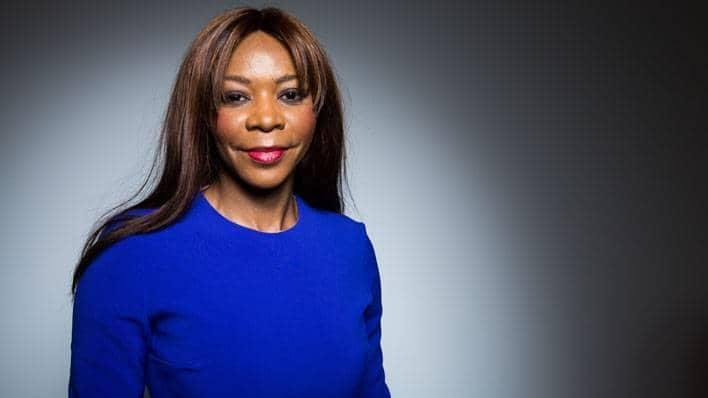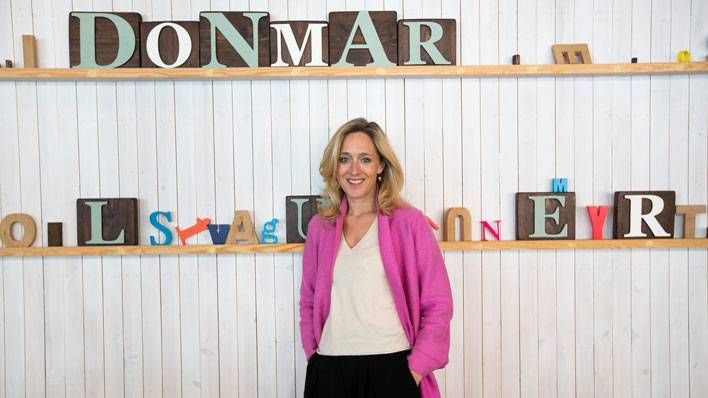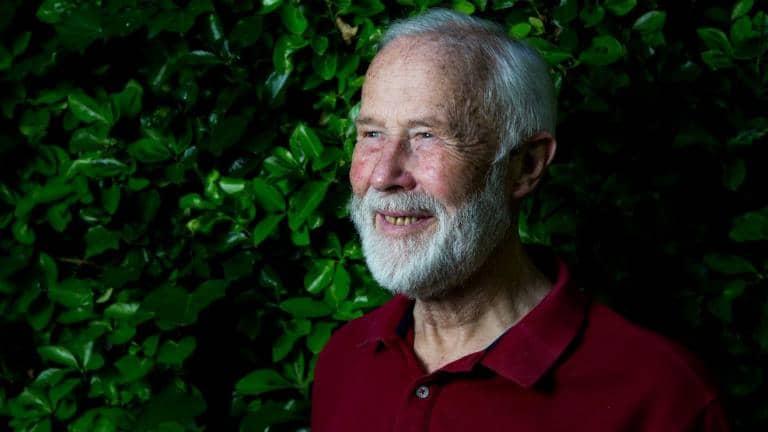
Leading Questions: Dambisa Moyo
Dambisa Moyo has been a Non-Executive Director on the board of Barclays since 2010

Kate Pakenham is the Executive Producer at the Donmar Warehouse, a not-for-profit theatre in Covent Garden, London, of which Barclays is the principal sponsor. After a period in television, she spent 10 years at The Old Vic theatre, where she set up Old Vic New Voices, a platform for emerging theatre-makers. She lives in London with her husband and two children.
You’ve said that if you work in theatre, your job becomes your life. Why are you so passionate about theatre?
There is something unique – and viscerally thrilling – about the experience of bringing together a room of people to share stories, live, as a community. That is particularly important in a world where we are increasingly disappearing behind multiple screens and might be surfing between experiences in any one moment. I’m not dissing that because technology has a lot to offer, but the purity of that shared moment is pretty special.
How do you know when a production is going well?
It’s a tangible feeling if a piece of theatre is working. It’s almost in the quality of the air: how heavy the silences are or how loud the laughter. But then there’s that ripple effect moving beyond the moment itself to the conversations that are sparked afterwards, whether that’s between individual members of the audience on the night, or in the press the next day or online in the days and weeks afterwards. We are interested in using theatre as a way of engaging the audience in a wider conversation about how we live.
Some of the Donmar’s more innovative ideas – such as your all-female Shakespeare trilogy set in a women’s prison – have drawn hostility from some reviewers. Tell me about how you harness that negativity.
Criticism is very healthy because it can become a propulsion. In 2012, there was a report that found that for every two jobs for men in theatre, there was one for women. We decided to put on an all-female production of Julius Caesar to make a statement about inequality of representation on stage. It was about celebrating women’s voices and opening up those plays that had not been owned by women to female actors.
Then the production jumped from the arts pages to the news pages. Alongside immensely positive coverage we had some sexist responses, and that was useful to reaffirm for us why we were doing this work – it reaffirmed our mission. What we had planned as a single production became a trilogy. It was our way of saying: “We are not going away”.
What have you learned about leadership through your work in the theatre?
The creative process is by its nature full of innovation and therefore full of risk. My job is to try and get the right people in the right roles and give them the right context to pursue their shared vision. We are trying to create a group of people who are going to support each other towards creating their best work. There’s nothing mathematical about that. It’s intangible and very much about instinct.
You are constantly balancing your own presence, trying to work out how much to lean in to that creative process and how much to step back. Sometimes you have to pull back so they can work in a protected, intimate way. And sometimes you need to be more present to help manage or support the process.
How would you sum up your leadership role at the Donmar?
I co-lead the Donmar with Josie Rourke (the ArtisticDirector). My leadership responsibilities are interesting in the sense that I need to lead from the front when I need to lead, but I also need to be able to let artistic leaders step forward and in those cases support them from the back. Those creative leaders can be multiple people at any one time: directors, writers, actors, so sometimes leadership can be required from me to manage that.
Part of your job involves bringing a group of creative people together for a specific, time-limited purpose. How do you go about building a strong team and making sure it functions well?
At the Donmar, we have the core team of 42 people who are across everything and then about 280 people over the course of a year who come together for shows. So you are looking after and trying to lead a permanent team and then other creative time-limited teams that are going to tell a story together. There is something about that – directors will often say “This is your family for the next three months”. The joy of that is when out of that come other relationships that lead to other productions.
You often have a number of visionaries making a piece of work together in collaboration and each of those voices needs to be heard acutely and seriously and drawn together towards a shared direction.
How do you balance the creative and commercial sides of the job?
There’s the core responsibility of managing the business from a financial point of view. But we are an arts charity whose survival depends on the creativity of the artists we work with. That’s the lead factor. So my focus is on identifying the best artists and supporting their ambitions and ideas. Then you have to find a way to make it work ¬– you don’t want to be frightened away from creativity by potential constraints. You start with the vision and work from there.
It sounds as though you enjoy the thrill of that balancing act.
I really do. That goes back to that live moment in the theatre. I really like people. I really like people in communities. I like robust conversation. And like any good conversation, you don’t know where it’s going to go. That’s the thrill. I have this image with some of our most daring projects where I think it’s like jumping off a cliff. But I’m not doing it alone, I make sure I’m holding hands with some very smart people – and that at least one of them has a parachute!
A lot has been made about the all-female leadership team at the Donmar (Pakenham, Artistic Director Josie Rourke and Chief Operating Officer Sally Noonan). How significant do you think it really is in defining your approach?
There’s a common denominator that we are all women but we are completely different individuals. In our first year there was a lot of press around that, which felt quite pressurising because we felt that if we messed up we would be messing it up for everyone. And I suppose our all-female Shakespeare season was an answer to that in some ways. We do think a lot about the work-life balance for women in theatre. There is an issue seeing women fall out of the career path because of the cost of childcare and the low pay in the theatre world. We see that and we are doing a lot here trying to think about long-term pathways for women and male carers. If the fact that we are three women running the Donmar is important for other women to see, then great. But I think it comes down to a group of individuals with complementary skills.
It’s all about balance. As a leader you need to be able to listen really well, ask questions and then cut through and lead with vision.
You’ve said previously that you’re “all about questions”. Do you think that’s a helpful quality in a leadership role?
It’s all about balance. As a leader you need to be able to listen really well, ask questions and then cut through and lead with vision. Equally, I think there’s a balance between confidence and humility, kindness and strength. It’s about empathy, understanding the individuals you are working with and supporting them to become the best of themselves. In the team there are 35 interesting, talented individuals and I feel it’s my leadership job to draw them together towards a common goal.
Are there any particular qualities that a good leader should possess?
Vision. The ability to listen. Authenticity. Also, I think you have to be quite courageous: some people innately have that and others learn it. To be able to listen to those multiple voices and then be able to say: “This is the way we are going to go”, that’s an act of courage.
Are there leaders in the theatre or other fields that inspire you?
There has been a stream of people but the thing that draws them together is that they are true to their own values and vision. A great leader is authentic to themselves. Sally Greene at The Old Vic gave me my first break in theatre and is an amazing leader in her own vision, and the confidence she gives the people around her that anything is possible. There’s a head teacher, Vanessa Ogden, who runs the Mulberry School in Tower Hamlets, who I admire enormously for her commitment to and vision for what girls’ education can be. It’s really wonderful to see leaders outside your sector and what you can learn from them.

Dambisa Moyo has been a Non-Executive Director on the board of Barclays since 2010

Sir Chris Bonington, 83, started climbing as a teenager in the 1950s and went on to become the UK's most celebrated mountaineer

Chi-chi Nwanoku is the founder of the Chineke! Orchestra and was named ‘Person of the Year 2016’ at the Barclays-sponsored Black British Business Awards

Anna Kessel is a sports journalist and the Chair and Co-founder of Women in Football